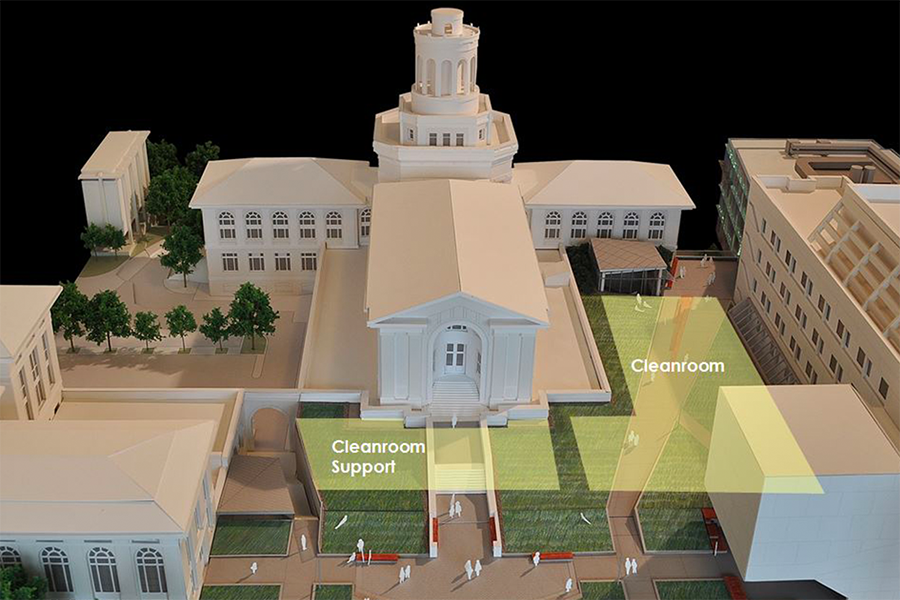
Scott Hall to add new nanofabrication facility
In true Carnegie Mellon style, the university is fusing hands-on learning experiences with high-impact, solutions-based research in one multidisciplinary hub — The Sherman and Joyce Bowie Scott Hall. The building itself spans multiple
A premier research laboratory in ECE and the College of Engineering, the Carnegie Mellon Nanofabrication Facility, or Nanofab, is currently located on the F-level of Hamerschlag Hall and
Contained within the Bertucci Nanotechnology Lab is the 8,500 square foot Eden Hall Foundation Nanofabrication Cleanroom, which will allow
Originally constructed by the university to support
“The creation of the new Claire and John Bertucci Nanotechnology Laboratory will transform the way we serve CMU-affiliated faculty and students, members of other institutions, and industry partners,” said Gianluca Piazza, ECE professor and director of the Nanofab. “The added capabilities in this new space will revolutionize nanoscale science and engineering at Carnegie Mellon and ensure we become one of the premier nanofabrication labs in the country.”
Although the Nanofab is a self-supporting facility managed by the Department of Electrical & Computer Engineering, research requiring the use of the facility is inherently multidisciplinary. Faculty, staff, and students access the labs and collaborate on projects originating from all departments within the College of Engineering, Physics, Robotics, Biology, Chemistry, numerous labs, and industry.
Learn more about the Carnegie Mellon Nanofabrication Facility: